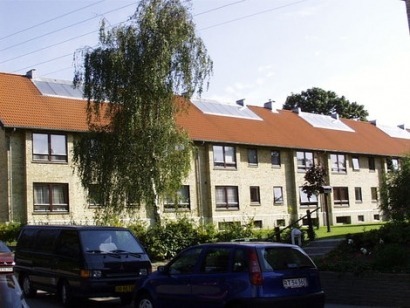
The European Biomass Association (AEBIOM), European Geothermal Energy Council (EGEC) and European Solar Thermal Industry Federation (ESTIF) have expressed disappointment in the new renewable energy goals agreed by the European Council yet they remain confident in the continuity of renewable energy development.
The EC’s target of 40 percent reduction in greenhouse gases (GHGs) incorporates a 27 percent goal for renewables, but the three industry groups believe that this is far too low a target for the needs of most Europeans. The target is also only binding at EU level and only includes an indicative 27 percent for energy efficiency.
Member states were squeezed by budget constraints, slow economic recovery and heavy lobbying from conventional industries. They were therefore not able to make more ambitious long-term commitments. They also failed to make a clear link between the heat security crisis, competitiveness and affordability concerns, and climate strategies.
The three groups said that the heating industry is ready to work with EU institutions in order to ensure that the resulting policy framework enables the proper growth of renewable heating and cooling, in line with the high potential of the sector but that the European Commission should now assume responsibility for proposing the appropriate governance and measures in order to guarantee that renewable energy technologies are able to continue their development.
Meanwhile the heat industry will strongly encourage the Commission to put in place a governance system ensuring the accountability of Member States regarding their pledges for 2030, implementing binding measures on renewable energy, energy efficiency, and smart infrastructure and guaranteeing full inclusion of heating and cooling into the EU energy and climate policy. There should also be more consistency between climate, security of supply, and affordability strategies and precise indicators to monitor the development of renewables for heating and cooling such as the switch rate from fossil fuels to renewables in the heat sector, and the building renovation rate.
The three groups believe that the 40 percent reduction target for GHG emissions and the 27 percent target for renewable energy would result in an increase in renewable heating and cooling (RHC) of just 4 percentage points, from 21 percent in 2020 to some 25 percent in 2030. They argue that with the energy efficiency gains and the resulting decreasing energy demand in the coming years, in absolute terms the current 27 percent minimum target is merely the equivalent of ‘business-as-usual’ and needs to be reconsidered urgently
For additional information:
European Biomass Association (AEBIOM)

